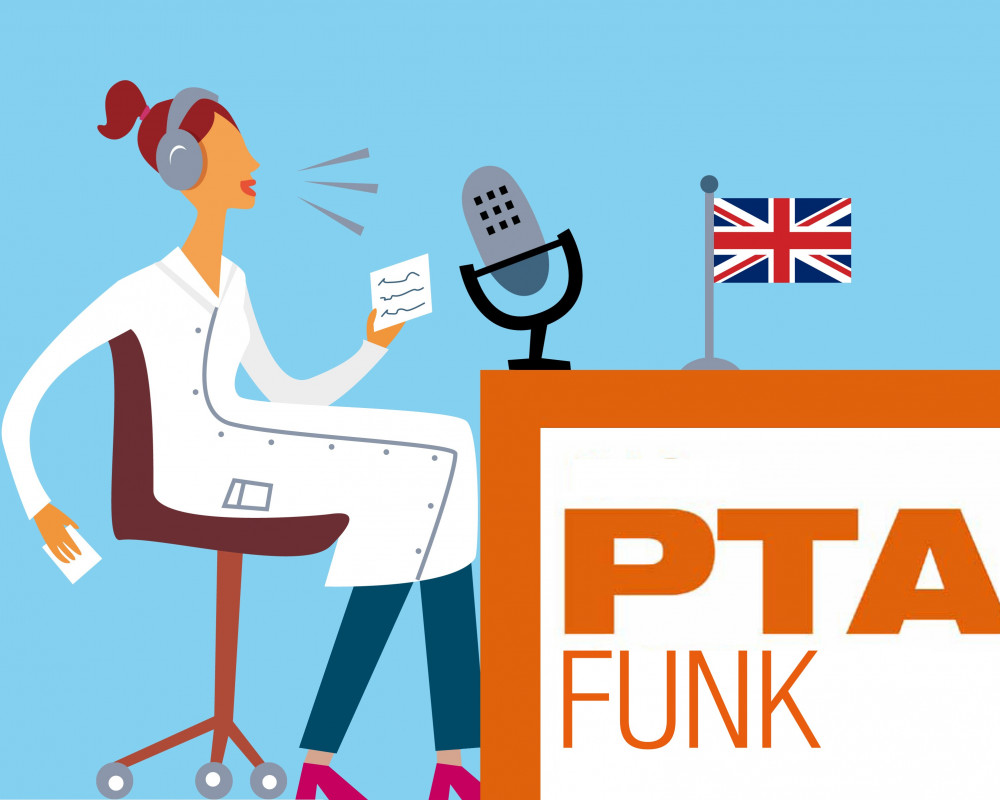Podcast PTA FUNK: Einfach Englisch lernen – Analgesics

Dialogue
PTA: Good afternoon.
Customer: Good afternoon, I’d like some advice on pain management, please.
PTA: Yes, of course. What exactly do you want to know?
Customer: Well, I’m taking care of an elderly relative. She lives alone and she’s been in pain for some time now. She suffers from osteoarthritis and has great difficulty getting around.
PTA: What medication is she on?
Customer: So far, she’s been taking a regular painkiller – paracetamol – but yesterday she told me, she was going to ask her doctor for something stronger. That in itself was strange. She doesn’t usually mention her pain. What possibilities does she have?
PTA: Older people are often reluctant to disclose pain. They perceive it as a natural part of aging and something they have to put up with. And health professionals have to be cautious when prescribing for the elderly as kidney function declines with age, the liver has problems coping with some medicines and drug interaction needs to be considered. It’s possible that a combination of substances may be prescribed.
Customer: What kind of combinations are there?
PTA: Depending on the type and degree of pain, opioids, and antidepressants could be included.
Customer: Will there be side effects?
PTA: I would say that all painkillers have some side effects, as any effective drug does, and due to changes in the body, an older person often runs a higher-than-average risk of having side effects. Constipation, nausea and dizziness are the most likely.
Customer: Okay, what can I do to help?
PTA: First accompany her to her doctor’s appointment and arrange for her to be carefully monitored. Make sure she drinks plenty of water to avoid dehydration, that she eats sensibly and encourage her to stay mobile in spite of her pain. For example, short walks, chair gymnastics or balance exercises would be good. If pain prevents a person from moving, they will not only lose their independence but also their will to live.
Customer: She’s a lovely lady; I would hate that to happen. Are there perhaps any supplements she can take?
PTA: I advise against taking supplements unless they’ve been approved
by her health care specialist.
Customer: Right. Well, thank you very much for your time.
PTA: You’re welcome, and I think going with her to see the doctor, will put your mind at rest.
Customer: I hope so.
Hören Sie PTA FUNK überall
PTA FUNK, der Podcast von DAS PTA MAGAZIN, beleuchtet Themen, die PTA interessieren. Egal, ob zuhause auf dem Sofa oder in der Bahn: Klicken Sie auf unsere Webseite, und hören Sie zu. Natürlich können Sie PTA FUNK auch über Apple Podcast, Spotify, Deezer, Amazon Music, Samsung Podcast und Podimo hören. Diese Episode dauert 4:14 Minuten.
Jetzt lesen und fortbilden!
Hier finden Sie den Artikel Analgesics: Various Types of Intervention aus unserer Serie English for PTA und die passende zertifizierte Fortbildung Analgetika.